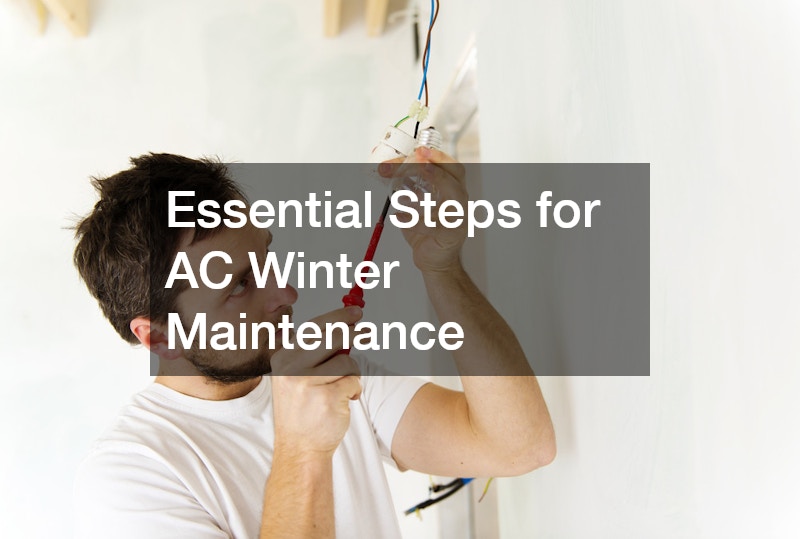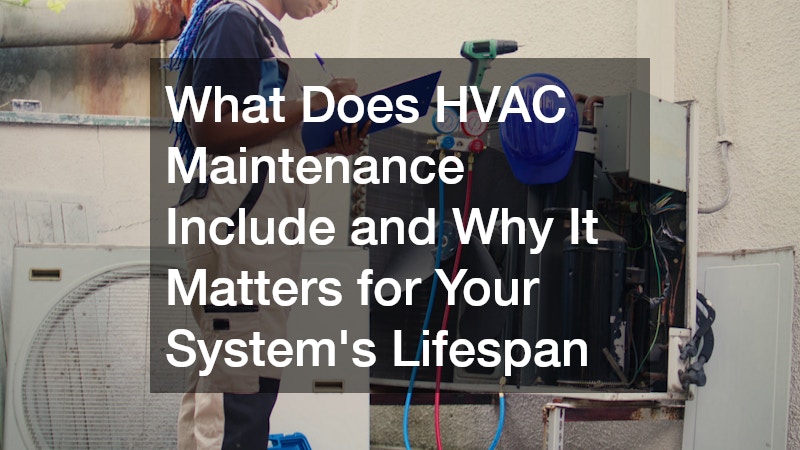Your HVAC system is an essential component of your home, ensuring comfort throughout the year. Whether it’s keeping you cool in the summer or warm during the winter, proper maintenance of your HVAC system can lead to significant energy savings and longer lifespan for your equipment. This article aims to address common questions homeowners may have about their HVAC system. From understanding when to change air filters to recognizing signs that maintenance is required, we cover it all.
How Often Should I Change My Air Filters?
Changing your HVAC air filters is crucial for maintaining the system’s efficiency and indoor air quality. The general recommendation is to replace the filters every one to three months, depending on various factors such as the type of filter, the presence of pets, and the level of household dust. Neglecting this task can lead to higher energy bills and potential damage to your equipment.
Dirty filters can restrict airflow, making your HVAC system work harder to maintain the desired temperature. This extra effort not only increases your energy costs but also accelerates wear and tear on the system. Consulting a local HVAC company can provide you with tailored advice on how frequently you should change your filters based on your specific needs.
If you suffer from allergies or have a household with pets, opting for high-efficiency particulate air (HEPA) filters can be beneficial. Regularly changing these filters with the help of a local air conditioning company can improve indoor air quality and make your home environment more comfortable. For the best results, consult with an HVAC contractor to select the most suitable filter type for your system.
What Is the Ideal Temperature for My HVAC System?

The ideal temperature for your HVAC system varies depending on the season and personal comfort preferences. During the summer, the recommended thermostat setting is between 75-78 degrees Fahrenheit when you are at home and minimally lower when away. In the winter, aim for 68-70 degrees Fahrenheit when home and lower it for the night or when you’re away.
Adjusting the thermostat by a few degrees can have a significant impact on your energy consumption. It has been shown that you can save around 1% on your energy bill for each degree you raise the thermostat in the summer or lower it in the winter. This small adjustment can contribute greatly to energy efficiency and lower utility bills.
Investing in a programmable thermostat can help you maintain these optimal settings without manual adjustments. This device automatically adjusts the temperature based on your preset schedule, ensuring comfort and savings. For expert installation, contact a local HVAC company that offers comprehensive HVAC services.
How Can I Improve Energy Efficiency in My Home?
Improving energy efficiency in your home not only reduces your carbon footprint but also lowers your utility bills. One of the simplest ways to achieve this is by scheduling regular maintenance for your HVAC system. An HVAC contractor can perform an energy audit to identify areas that need improvement and recommend energy-saving solutions.
Sealing leaks around doors and windows is another effective way to improve energy efficiency. Drafts can significantly affect your HVAC system’s performance, forcing it to work harder to maintain indoor comfort. Use weather stripping or caulking to seal these gaps and keep the conditioned air inside.
Upgrading your insulation is also an effective strategy for improving energy efficiency. Properly insulated homes retain heat better in the winter and stay cooler in the summer, reducing the workload on your HVAC system. For expert advice, estimates, and heating and air conditioning installation services, reach out to a trusted local HVAC company.
What Are the Signs My System Needs Maintenance?

Recognizing the signs that your HVAC system needs maintenance can prevent costly repairs and extend the life of your equipment. One common sign is inconsistent temperatures throughout your home. If some rooms are too hot or too cold, it could indicate an issue with the ductwork or the HVAC system itself.
Another warning sign is unusual noises coming from your HVAC unit. Sounds like banging, squealing, or grinding can indicate mechanical issues that need immediate attention. If you notice these noises, contact an HVAC contractor right away to diagnose and resolve the problem.
Increased energy bills without a corresponding increase in usage can also signal that your HVAC system is not operating efficiently. This could be due to dirty filters, leaking ducts, or insufficient maintenance. Scheduling a regular inspection with a local HVAC company can help identify and fix these issues before they become major problems.
Should I Consider a Programmable Thermostat?

Programmable thermostats offer numerous benefits, making them a worthwhile investment for any homeowner. They allow you to set different temperatures for various times of the day, ensuring comfort when you’re home and energy savings when you’re not. This automated adjustment can lead to significant energy savings over time.
Many programmable thermostats also come with advanced features like Wi-Fi connectivity, enabling you to control the temperature remotely through a smartphone app. This adds an extra layer of convenience and ensures that your home is always at the optimal temperature when you arrive.
Installing a programmable thermostat is a relatively simple process, but it’s best to consult an HVAC contractor for proper installation and setup. This ensures that the device is correctly integrated with your existing HVAC system, providing seamless and efficient operation.
What Is the Lifespan of My HVAC Equipment?
The lifespan of HVAC equipment varies depending on the type of system, usage, and maintenance. Generally, air conditioners and heat pumps last about 10-15 years, while furnaces can last 15-20 years. Regular maintenance and timely repairs can extend the lifespan of your HVAC equipment.
Factors such as climate, usage patterns, and the quality of installation also influence the lifespan of your system. In harsher climates, HVAC systems tend to work harder, which can shorten their lifespan. Scheduling regular check-ups with an HVAC contractor can help keep your system running efficiently and extend its life.
If your system is nearing the end of its expected lifespan and requires frequent repairs, it might be more cost-effective to invest in a new system. A local AC repair company can provide an air conditioning repair estimate and recommend the best replacement options to suit your needs and budget.
How Do I Know If My System Is the Right Size?
The size of your HVAC system plays a critical role in its efficiency and performance. An undersized system will struggle to maintain the desired temperature, leading to higher energy bills and shorter equipment life. Conversely, an oversized system will cycle on and off frequently, causing uneven temperatures and increased wear and tear.
To determine the correct size for your HVAC system, a professional load calculation should be performed by a qualified HVAC contractor. This calculation takes into account factors such as the size of your home, insulation levels, window types, and local climate conditions.
Choosing the right size ensures optimal performance and energy efficiency. If you suspect your current system is incorrectly sized, consult with a local HVAC company for an evaluation and recommendations on possible adjustments or replacements.
What Should I Do If My System Is Making Strange Noises?

Strange noises from your HVAC system are often a sign that something is wrong. Common noises include banging, which could indicate loose or broken components; squealing, which might be due to a worn-out fan belt; and grinding, often a sign of motor issues. It’s important to address these noises promptly to prevent further damage.
When you hear unusual noises, turn off your HVAC system and contact an HVAC contractor as soon as possible. They can diagnose the issue and recommend the necessary repairs. Ignoring these noises can lead to more severe problems and costly repairs in the future.
Regular maintenance can help prevent these issues by catching potential problems early. Scheduling inspections with a local HVAC company ensures that your system remains in good working order and helps avoid unexpected breakdowns.
How Can I Improve Indoor Air Quality?
Improving indoor air quality is essential for your health and comfort. One effective way is to ensure your HVAC system is equipped with high-quality filters that can remove pollutants and allergens from the air. Regularly changing these filters is crucial for maintaining clean indoor air.
Another method is to use an air duct cleaner to remove dust, mold, and other contaminants from your ductwork. Clean ducts not only improve air quality but also enhance the efficiency of your HVAC system. An HVAC contractor can provide professional air duct cleaning services to ensure optimal results.
Consider adding a whole-home air purifier to your HVAC system. These devices can remove a wide range of pollutants, including smoke, pet dander, and volatile organic compounds (VOCs). Consult with a local HVAC company to determine the best air purification system for your needs.
What Is the Importance of Regular HVAC Inspections?
Regular HVAC inspections are crucial for maintaining the efficiency and longevity of your system. During an inspection, a technician will check various components, including the thermostat, electrical connections, and refrigerant levels, to ensure everything is functioning correctly.
Inspections can identify potential issues like heating repair needs before they become major problems, saving you money on costly repairs. For example, they can detect refrigerant leaks, worn-out parts, or dirty filters that need replacement. By addressing these issues promptly, you can prevent system breakdowns and improve energy efficiency.
Most HVAC companies recommend scheduling inspections at least twice a year—once in the spring for your air conditioner and once in the fall for your heating system. This ensures that your equipment is ready to handle the demands of the upcoming seasons. Contact a local HVAC company to schedule your next inspection.
Are There Rebates or Incentives for Upgrading My System?
Many utility companies and government programs offer rebates or incentives for upgrading to more energy-efficient HVAC systems. These incentives can help offset the initial cost of new equipment, making it a more affordable option for homeowners. It’s worth researching available programs in your area.
Upgrading to a high-efficiency HVAC system not only qualifies you for rebates but also leads to long-term energy savings. Modern systems are designed to use less energy while delivering superior performance. An HVAC contractor can provide information on eligible systems and help you apply for available incentives.
Additionally, some manufacturers offer seasonal promotions or financing options to make upgrading more accessible. Consult with a local HVAC company to explore your options and find the best deals on new HVAC equipment.
What Are the Benefits of a Ductless System?
A ductless system, also known as a mini split air conditioner, offers several advantages over traditional HVAC systems. One of the primary benefits is the ability to provide zoned heating and cooling, allowing you to control the temperature in individual rooms independently. This can lead to significant energy savings and enhanced comfort.
Ductless systems are also easier to install, as they do not require extensive ductwork. This makes them an excellent option for older homes or spaces where installing ducts is impractical. An HVAC contractor can assess your home and recommend the best ductless system for your needs.
Another advantage is the improved air quality that ductless systems offer. Without ductwork to harbor dust and allergens, these systems can deliver cleaner air to your home. Regular maintenance and filter changes can further enhance the air quality and performance of your ductless system.
How Can I Tell if My Ductwork Needs Repair?
Ductwork plays a crucial role in the distribution of conditioned air throughout your home. Signs that your ductwork may need repair include uneven temperatures in different rooms, increased energy bills, and visible air leaks or damage to the ducts. If you notice these signs, it’s essential to address the issue promptly.
Leaky ducts can waste a significant amount of energy, as conditioned air escapes into unconditioned spaces like attics or basements. This forces your HVAC system to work harder to maintain the desired temperature, leading to higher energy costs. An air duct cleaner can inspect your ductwork and recommend necessary repairs or sealing.
Improperly sized or poorly installed ductwork can also affect the efficiency of your HVAC system. A professional evaluation by an HVAC contractor can identify these issues and suggest appropriate solutions. Regular duct inspections and maintenance can help ensure optimal performance and energy efficiency.
Maintaining your HVAC system is essential for ensuring comfort, energy efficiency, and indoor air quality in your home. From changing air filters regularly to scheduling bi-annual inspections with a local HVAC company, simple maintenance tasks can have a significant impact on the performance and longevity of your equipment. Being proactive about recognizing signs of maintenance needs, investing in programmable thermostats, and exploring the benefits of ductless systems can lead to substantial savings and improved home comfort.
If you have any questions or need HVAC services, don’t hesitate to contact a reputable local HVAC company. Whether you need an air conditioning repair estimate, heating repair, or air conditioning installation, professional help can make all the difference in maintaining a reliable and efficient system. Additionally, keep an eye out for rebates and incentives that can make upgrading your HVAC system more affordable.
By following the guidelines and tips provided in this article, you can ensure that your HVAC system operates at peak performance, providing comfort and savings for years to come.



